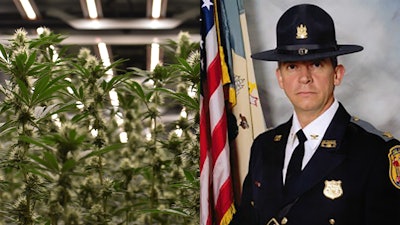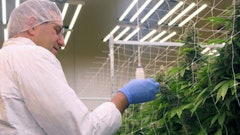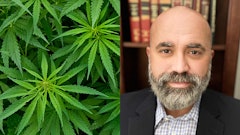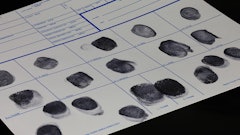
Delaware Gov. John Carney announced June 12 that he nominated a former top law enforcement official to serve as marijuana commissioner for the state’s forthcoming adult-use cannabis program. The position is within the state’s Department of Safety and Homeland Security (DSHS).
In this new role, Robert Coupe will oversee the implementation of the licensed and regulated cannabis marketplace in Delaware. In part, Coupe will be responsible for issuing licenses for 60 cultivation, 30 manufacturing and 30 retail facilities.
Carney’s nomination comes after he allowed a pair of legalization measures to become law in April without his signature. The Democratic executive vetoed a previous legalization attempt in 2022.
The Delaware Senate is expected to consider Carney’s nomination this month.
Coupe, a colonel who was the superintendent of the Delaware State Police after serving 28 years as a trooper, currently serves as chief of staff at the Delaware Department of Technology and Information.
With more than 35 years of state service, he also served as chief of staff at the Delaware Department of Justice, secretary of the DSHS, and commissioner of the Delaware Department of Correction.
“As I’ve said before, there are few people across our state who are more well-respected, and more committed to serving the people of Delaware, than Rob Coupe,” Carney said in a press release. “He’s exactly the right person to take on this new challenge.”
Notably, Delaware’s legalization measure states that the commissioner must be suitably educated and experienced to carry out certain duties and responsibilities set forth in the law.
In addition, before being formally appointed as marijuana commissioner, an individual is required to provide the governor and president pro tempore of the Senate a statement of interest in cannabis businesses or products to ensure he or she avoids any conflicts of interest.
Other responsibilities designated to the marijuana commissioner include:
- Adopting rules and regulations for the effective control of licensed businesses that are consistent with state law;
- Identifying “disproportionately impacted area” census tracts that have high rates of arrest, conviction and incarceration relating to cannabis offenses;
- Prescribing hours of operations for licensed dispensary businesses;
- Adopting regulatory and security safeguards to ensure that access to and use of cannabis is provided only to individuals 21 and older;
- Recommending any additions or revisions to state law relating to security, safe handling, labeling, and nomenclature;
- Submitting annual reports to the governor and General Assembly;
- Naming a deputy commissioner;
- Maintaining ongoing communication with the Department of Agriculture regarding the physical addresses where cannabis or hemp is cultivated;
- Establishing health and safety regulations for indoor and outdoor cultivation, including environmental standards;
- Overseeing appeals or hearings related to violations or regulatory enforcement decisions;
- Adopting regulations necessary for licensure, including a competitive scoring process;
- Determining and adjusting license applications fees annually to account for inflation;
- Promulgating rules related to acceptable testing and research practices;
- Creating additional licensing tiers for canopy sizes two years after legalization is enacted, if deemed necessary;
- Establishing a standard symbol for packaging and labeling compliance;
- Developing a technical assistance program to aid social equity applicants in applying for a license and finding financial resources;
- Investigating opportunities for public and private sources of financial assistance that could support social equity applicants; and
- Reopening the license application process two years after the program is enacted, based on supply and demand needs
























